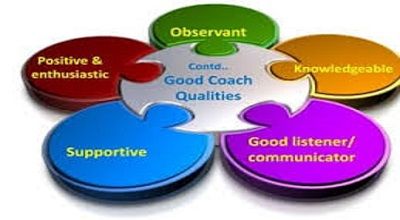Qualities and Qualifications of Coach
Qualities and Qualifications of Coach and Officials are the latest here. Coaches and officials play crucial roles in various sports and activities, each requiring specific qualities and qualifications. Here are some general qualities and qualifications associated with coaches and officials:
Qualities of a Coach:
Knowledgeable:
- Possesses a deep understanding of the sport, including rules, techniques, and strategies.
Effective Communication:
- Able to convey ideas clearly and motivate athletes.
Leadership Skills:
- Provides guidance, sets goals, and leads by example.
Adaptability:
- Can adjust coaching methods to suit individual and team needs.
Patience:
- Understands that athletes progress at different rates and remain patient during the learning process.
Motivational:
- Inspires athletes to perform at their best and fosters a positive team environment.
Problem-solving:
- Can identify weaknesses and develop strategies to overcome challenges.
Ethical Conduct:
- Demonstrates sportsmanship and upholds the values of fair play.
Time Management:
- Efficiently plans and utilizes practice time.
Continuous Learning:
- Stay updated on the latest developments in the sport and coaching techniques.
Qualifications for Coaches:
Educational Background:
- Many sports organizations require a minimum level of education in sports science, physical education, or a related field.
Certifications:
- Obtaining coaching certifications from recognized governing bodies enhances credibility.
Experience:
- Practical experience, either as a player or in coaching roles, is often essential.
First Aid and CPR Certification:
- Basic medical training is valuable in case of injuries.
Background Checks:
- Ensures a coach’s suitability to work with athletes, particularly in youth sports.
Qualities of an Official:
Impartiality:
- Maintains neutrality and enforces rules consistently.
Decisiveness:
- Makes quick and accurate decisions, especially in fast-paced situations.
Knowledgeable:
- Possesses a comprehensive understanding of the rules and regulations governing the sport.
Communication Skills:
- Communicates decisions to players, coaches, and spectators.
Calm Under Pressure:
- Can handle intense and high-pressure situations with composure.
Integrity:
- Upholds the highest standards of honesty and fairness.
Fitness:
- Depending on the sport, officials may need to maintain a certain level of physical fitness.
Continuous Learning:
- Stays informed about rule changes and updates in the sport.
Qualifications for officials:
Educational Background:
- Similar to coaches, officials may benefit from education in sports science or related fields.
Certifications:
- Obtaining officiating certifications from relevant governing bodies is often required.
Practical Experience:
- Officiating at lower levels before moving to higher-level competitions.
Rule Examinations:
- Passing examinations on the rules of the sport.
Clinics and Workshops:
- Attendance at officiating clinics and workshops to stay updated on best practices.
License:
- Obtaining and maintaining an official’s license if required by the sport’s governing body.
Final Words
Both coaches and officials contribute significantly to the development and success of athletes and the overall integrity of sports competitions. Continuous learning and commitment to ethical conduct are essential for individuals in these roles.
